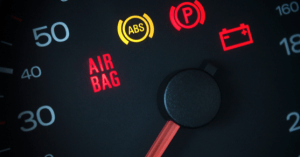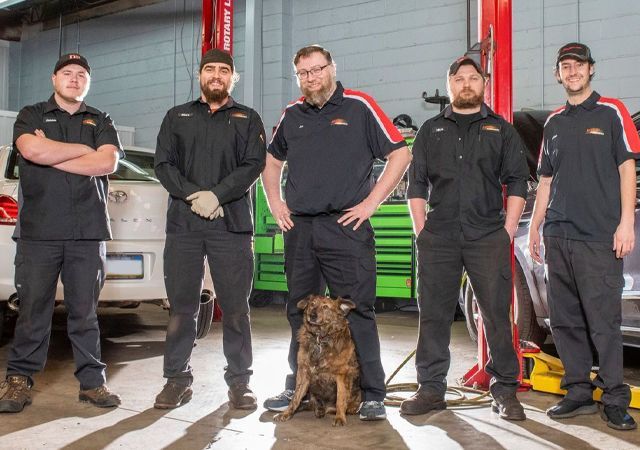Everything You Need to Know About Vehicle Overheating
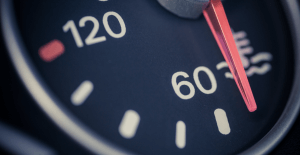
Overheating is a common problem that many drivers experience with their cars. In this blog, we’ll discuss what can cause overheating, what to do if your car overheats, and how to prevent overheating in the first place. By following these guidelines, you can keep your vehicle running smoothly and avoid the frustration and expense of an overheating engine.
What Is Causing My Car to Overheat?
Your car may overheat for several reasons. One of the most common reasons is a low coolant level, which can cause the engine to overheat. Another common cause of overheating is a malfunctioning thermostat, which can cause the engine to operate at an incorrect temperature. A damaged or worn out water pump can also lead to overheating by preventing proper circulation of coolant through the engine. Additionally, a clogged radiator or a faulty radiator fan can restrict air flow, causing the engine to overheat. Any leaks in the cooling system can also lead to low coolant levels, which can cause overheating. In general, regular maintenance, such as checking and topping off coolant levels, inspecting hoses and belts, and replacing the thermostat as recommended by the manufacturer, can help prevent overheating and other issues.
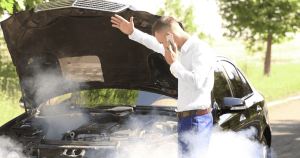
If you notice that your car’s temperature gauge is in the red or you see steam coming from under the hood, it’s likely that your car is overheating. Here’s what you should do:
What Should I Do If My Car Overheats?
If you notice that your car’s temperature gauge is in the red or you see steam coming from under the hood, it’s likely that your car is overheating. Here’s what you should do:
- Pull Over Immediately: The first thing you should do is pull over to a safe location as soon as possible. Turn off the engine and let it cool down for at least 30 minutes.
- Check the Coolant Level: Once the engine has cooled down, check the coolant level in the radiator. If the coolant level is low, you may need to add more coolant. However, if the coolant level is consistently low, there may be a leak in the system.
- Check for Leaks: Look for any signs of leaks under the car. Check the hoses, radiator, and water pump for any signs of damage or wear.
- Restart the Engine: After you’ve added coolant and checked for leaks, restart the engine and let it run for a few minutes. Keep an eye on the temperature gauge to make sure it stays in the normal range.
- Take Your Car to a Mechanic: If your car continues to overheat, it’s important to take it to a mechanic as soon as possible. They can diagnose the problem and make any necessary repairs.
If your vehicle overheats, it can be a dangerous and costly problem. An overheated engine can cause serious damage to various parts, such as the head gasket, cylinder head, or pistons. These repairs can be expensive and time-consuming. In addition, overheating can also put you and other drivers on the road at risk. An overheated engine can cause your car to stall, leaving you stranded on the side of the road or even causing a collision. If you notice your car’s temperature gauge in the red or see steam coming from under the hood, it’s important to take immediate action to prevent further damage and potential accidents.
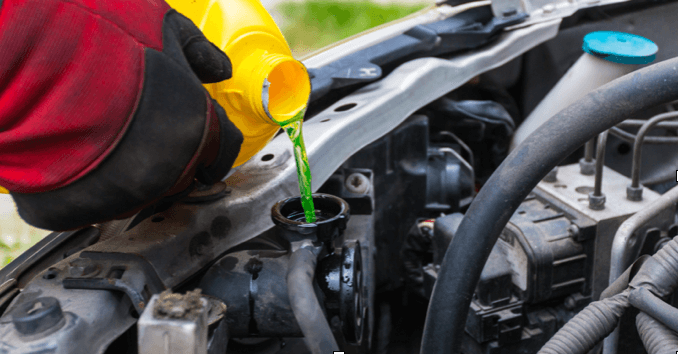
How Can I Prevent My Car From Overheating?
Preventing overheating is much easier than dealing with the aftermath. Here are some things you can do to prevent your car from overheating:
- Regularly Check Coolant Levels: Make sure to check your coolant level regularly and top it off as needed.
- Inspect Hoses and Belts: Inspect the hoses and belts in your car’s cooling system for any signs of damage or wear.
- Replace Thermostat: Replace your car’s thermostat every 50,000 miles or as recommended by the manufacturer.
- Flush the Radiator: Flush the radiator every 50,000 miles or as recommended by the manufacturer to remove any built-up sediment.
- Use a Cooling System Additive: Using a cooling system additive can help prevent corrosion and buildup in the system.
As an automotive repair shop, we understand that an overheating car can be frustrating and alarming. If you’re experiencing an overheating engine, it’s essential to address the issue promptly to prevent further damage and costly repairs. Our experienced technicians are trained to diagnose and repair overheating issues in all makes and models of vehicles. From checking and topping off coolant levels to inspecting hoses, belts, and the cooling system for leaks, our team will identify the root cause of the problem and recommend the best course of action. At Epoch Automotive in Doylestown, PA, we prioritize customer satisfaction and use high-quality parts and equipment to ensure that your vehicle is back on the road safely and efficiently. Don’t wait until it’s too late – bring your overheating vehicle to us for expert service you can trust.
